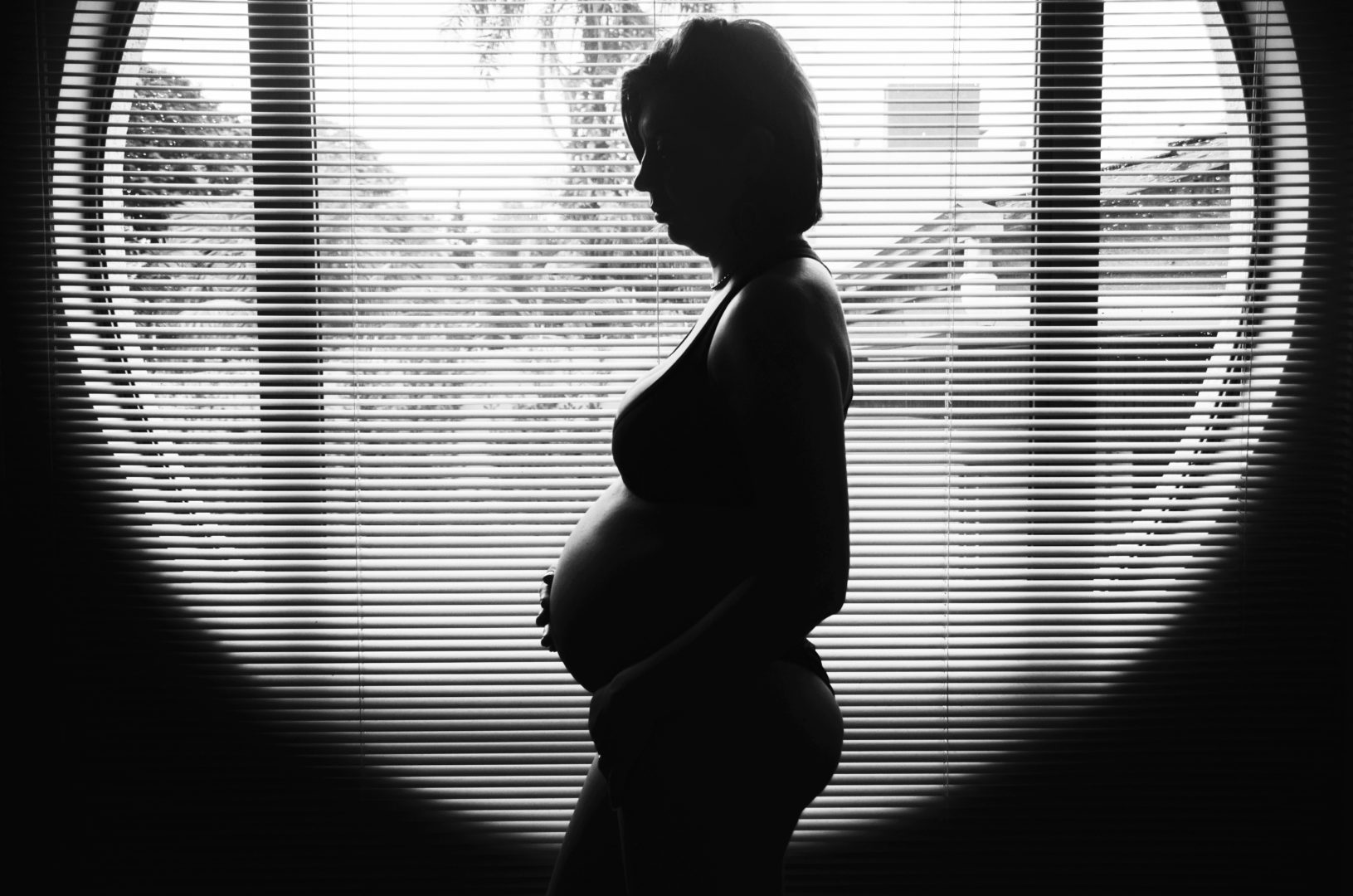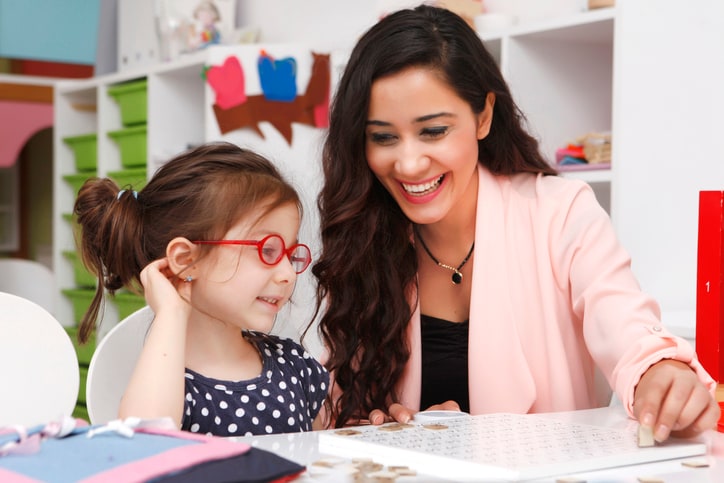What Did I Do?
I think it was about a month in when I sensed that something was wrong.
It’s hard to pinpoint exactly; anyone will tell you that new motherhood is a blurry haze of extremities and new “normals.” Older and more familiar feelings must make room for new, sometimes strange ones. Discerning how those pieces fit together can be uncomfortable and take time.
But something didn’t feel good.
I remember taking an evening walk with my husband and our 1-month-old-ish daughter. It was the middle of a brutally hot Los Angeles summer, and only after the sun went down did it feel safe to go outside. As we strolled through our neighborhood, we probably looked like the quintessential picture of new parenthood: sleepy but content, proud of our new tiny being while our hearts burst with joy.
I’d been stuck indoors all day with my mom and my newborn. My husband was at work. Hiding out in the air conditioning, not wanting to see anyone or do anything, I was starved for sleep and silence. I didn’t want to eat, and often retreated to my room with the curtains drawn while my mother watched the baby. People stopped by and cooed at our new addition. Dumbfounded, I watched these interactions and wondered why I didn’t react the same way to my own offspring.
Congratulatory text messages kept popping up that I didn’t respond to. I wasn’t feeling worthy of congratulations. I wasn’t feeling happy or excited. I didn’t want to be out and about with my babe, showing off my great new life.
All I wanted to do was escape. To disappear.
As we turned down a quiet residential street and headed back to our home, my husband pushed the stroller. I felt heavy inside, full of fear and shame and deep confusion. I kept searching for a maternal feeling that I simply could not conjure up. Instead, there was just flatness.
My husband mentioned a couple currently trying to get pregnant, and I responded, “If someone asked me if they should have a baby, I would tell them it’s not worth it.”
Sharp inhale as I see those words on the page. Body flooding with overwhelming surprise, grief and guilt that there was a time when I felt this way about my child. My feisty daughter: fearless, curious and downright hilarious. The kid who everyone says is so happy and saucy and vibrant. The one I love so deeply that I cannot bear it. The light of my life!
Now I know that I was in the beginning stages of postpartum depression.
Expectation, Meet Reality
Everyone told me what a relaxed baby I was going to have. I was the oldest of five kids, and many people said raising a child was practically in my DNA. I was a movement and meditation teacher. I did yoga and handstands throughout my pregnancy. I went to acupuncture, did craniosacral therapy, squatted daily per Ina May Gaskin and rolled on a ball. I ate all the right things, saw a naturopath, had a doula, chose a “midwifey” OB.
Everything was in its right place; I had this!
Looking back, I see how, even while pregnant, I was still trying to control things to ensure that I would have the “perfect” experience. I held onto the idea of some unspoken karmic guarantee that if I did the right things, it would guarantee me a positive experience.
I would be so amazing!
I would do the best job in the world!
I would be so in love!
I claimed to be open to anything that happened during the birth and postpartum period. Subconsciously, I expected things to be seamless and beatific. You know, the Instagram version of maternal life: soft-focus filters with saturated pastels and hashtags to express the graceful transition one naturally makes into mothering bliss.
In all the time before, during, and after my pregnancy, postpartum depression and anxiety (PPD/A) wasn’t something anyone talked about. It rarely is. It was a cursory mention in a birthing book, a perfunctory assessment of my mental health by my OB at my six-week checkup after birth. It was not on my radar.
So, when things went south (and oh, they did — and fast), I wasn’t prepared for it. This overwhelming depression at a time when I thought I would be my happiest was not in my universe of possibility.
Treading Water
Believe you me: The social stigma of PPD/A is still alive and well. The condition and its circumstances inherently breed silence and self-contempt. For a long time, I stayed silent and blamed myself for being unable to cope.
I couldn’t face stories online or offline about women having peaceful, positive experiences with early motherhood because it increased my sense of loneliness and failure. No one else seemed to be having these kinds of problems, and I was embarrassed that I wasn’t getting the hang of being a parent.
When I wasn’t sad, I was angry — full of rage, flying off the handle at a moment’s notice at anyone in my path. As hard as I tried, I just couldn’t get my emotions under control, and I kept asking myself what I did to deserve this.
I couldn’t imagine why anyone would want to be around me. I didn’t want to be around me.
Months of mental and emotional distress continued, exacerbated by feeding and nursing issues, a baby with colic and reflux, and so little sleep I’m not sure how I survived. Every day felt relentless and exhausting. I could feel myself pulling away from everyone and everything that mattered to me. I was numb and desperate to get out of this cycle before it got worse.
I ended up contacting a friend of mine who’s also a therapist. We had babies around the same age, and I felt safe being honest with her about how bad I felt. I was spiraling, desperate for an escape hatch. I constantly felt like I was treading deep water and at risk of drowning.
I needed advice on how to fix this. It wasn’t sustainable.
Cultivating Compassion
My friend sent me names of therapists who specialized in postnatal issues. I called one the next morning, and was in a practitioner’s office the next week, sobbing while being told it was OK, I would get better, and my situation was more normal than I knew. The therapist told me that everything I had been through wasn’t a sign of being unfit as a mother, but rather hallmark symptoms of PPD/A.
Relief flooded my body. For the first time in almost a year, I had hope. I wasn’t damaged goods. I wasn’t alone and I could get better. I could love my daughter the way I wanted to, and I might not have to be so angry, exhausted, and on edge all the time.
It’s been over a year since I walked into that session and admitted that I wasn’t well. I’ve learned so much about how prevalent postnatal mood disorders are, and how far good support and an understanding community go in helping women heal. I now know that PPD/A is influenced by a combination of genetic and environmental forces, and that the symptoms are numerous, running the gamut from mild/moderate to severe and possibly requiring inpatient treatment. I completed a PPD/A risk assessment (I didn’t know such a thing existed), and discovered I had several clinically relevant factors that make me more susceptible to the condition. I also learned the value of compassion for myself and others dealing with PPD/A.
With the help of some very skilled professionals, I was able to honor my past and unwind all of the stress and challenges of being a new mother to figure out skillful ways to move forward with my life.
As I continue to heal from my experience and grow as a mother, I am now confident in my capacity to love my daughter and be worthy of her love in return.
Mary O’Malley is a mama, writer, mindfulness facilitator and pre/postnatal movement specialist living in Los Angeles, California. She loves dogs, poetry, kind humans + red wine. You can find her on Twitter and Instagram.






